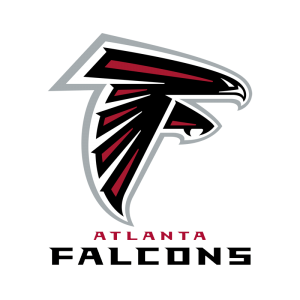This article is part of our on-going series of Innovation in Professional Sports. We will look at trends that are changing the games that we know and love, the environment that drove those changes, how those changes were enacted and what lessons your franchise business can learn to make it more innovative. For this article, we will look at the National Football League, and how the Atlanta Falcons dropped concession prices to combat a declining trend in attendance numbers.
Businesses that have success play to their strengths. And with the franchise business model, that strength is their franchisees. Used intelligently, the franchiser can use their franchisees to test new theories. Capturing real data about your customer’s reactions to proposed changes.
In the National Football League, there are 32 franchisees. While the NFL is far and away the most popular sport in America, there are cracks in the facade. For instance, stadium attendance is dropping. According to Sports Business Daily, attendance was at its lowest levels since 2010. When attendance drops, owners and vendors lose money because fans aren’t buying as many concessions.
Arthur Blank, co-founder of the Home Depot and owner of the Atlanta Falcons, was well aware of these trends when he wanted to build a new stadium in Atlanta. While it did not deter him, he was concerned.
SIDE NOTE: the video of the MARTA bus photobombing the implosion of his old stadium is something of legend. Check it out here.
Their Theory
To combat the decreasing attendance numbers, Mr. Blank ran an experiment. And just like in high school chemistry class, their experiment started with a theory. Their theory was by lowering concession prices, and making the environment more family friendly and affordable, they would be able to get more people into the stadium. And that the overall volume of sales would lead to higher profit margins.
Eater.com did an interesting piece on it here. And you can get Bloomberg’s take here.
Their Results
A year later, the results are in. And they confirm the theory was at least partially right. In an era when attendance is down and fans are spending less, the Falcons saw:
- 6,000 more fans entered their stadium 2 hours prior to kickoff
- The venue sold as much food by the end of the 1st quarter as it was by the end of the game 2 years prior, with overall food sales up 53%
- The Falcons had the highest satisfaction rating among NFL fans – jumping up 17 spots!
- The average fans spent 16% more in the stadium, although total revenues did drop because of the lower prices
While the revenue drop is concerning, my questions to you as a franchise owner is, what could you do with 6,000 more people willing to buy from you? Especially, when those 6,000 customers are spending more time in your stores and their experiences are over-whelming positive!
Next Steps
There are two sides to the “next steps.” There are the next steps for the franchisee, the Falcons, and the franchise, the NFL.
Next Steps – Atlanta Falcons
From the Falcon’s point of view, while the early returns are very encouraging, there is still work to be done. After all, there is only 8 games worth of data. It is unclear yet how this will carry over year to year. Will this increase be the new norm or will there be a regression in Season 2?
Mr. Blank himself has already talked about wanting to push the envelope further by lowering prices more for the 2019 season. You can find their official press release here. They are also looking to further increase the fan experience by getting rid of cash transactions to keep the lines moving.
The bigger question is, what will this do to season ticket sales? Some teams are seeing decreasing numbers in season ticket holders. Will this be enough to address that trend in Atlanta?
If it does, and Atlanta continues to bring in more customers to their games who are both willing to spend more and are more satisfied with their experience, then that drop in concession revenue will be offset by greater sponsorship opportunities. This could very well end up being a concession that leads to a greater victory.
Next Steps – NFL
The next steps for the NFL are to learn from the Falcon’s experiment, and determine how those lessons can be applied to its other 31 franchisees. Again, this is where a franchise has an advantage over single location businesses. If the experiment wouldn’t have worked, oh well. Atlanta may have lost a couple bucks, but it certainly wouldn’t have brought down the league.
However, now that it did succeed, it is in the league’s best interest to (smartly) roll it out to its other franchisees. The only thing better than one franchisee flourishing is more flourishing. And that seems to be what is happening. The Bloomberg article noted how “dozens” of team owners and venues have been asking about their pricing model.
Now this change is very culture driven. So, my encouragement is for the NFL to take its time and make sure it truly understands what led to these successes. Otherwise, you may see what worked in the southern city of Atlanta not work in the northern city of Boston or the coastal city of San Francisco.
But, they at least have a blueprint and a viable proof of concept to learn from.
Applying This to Your Franchise
You don’t have to be the NFL to implement these small scale experiments. We call them Profit Scalability Pilots. And if you’d like to read our breakdown for how they would fit in your franchise, you can download our whitepaper on Strategically Scaling a Franchise with the InnoSpecting Framework.
